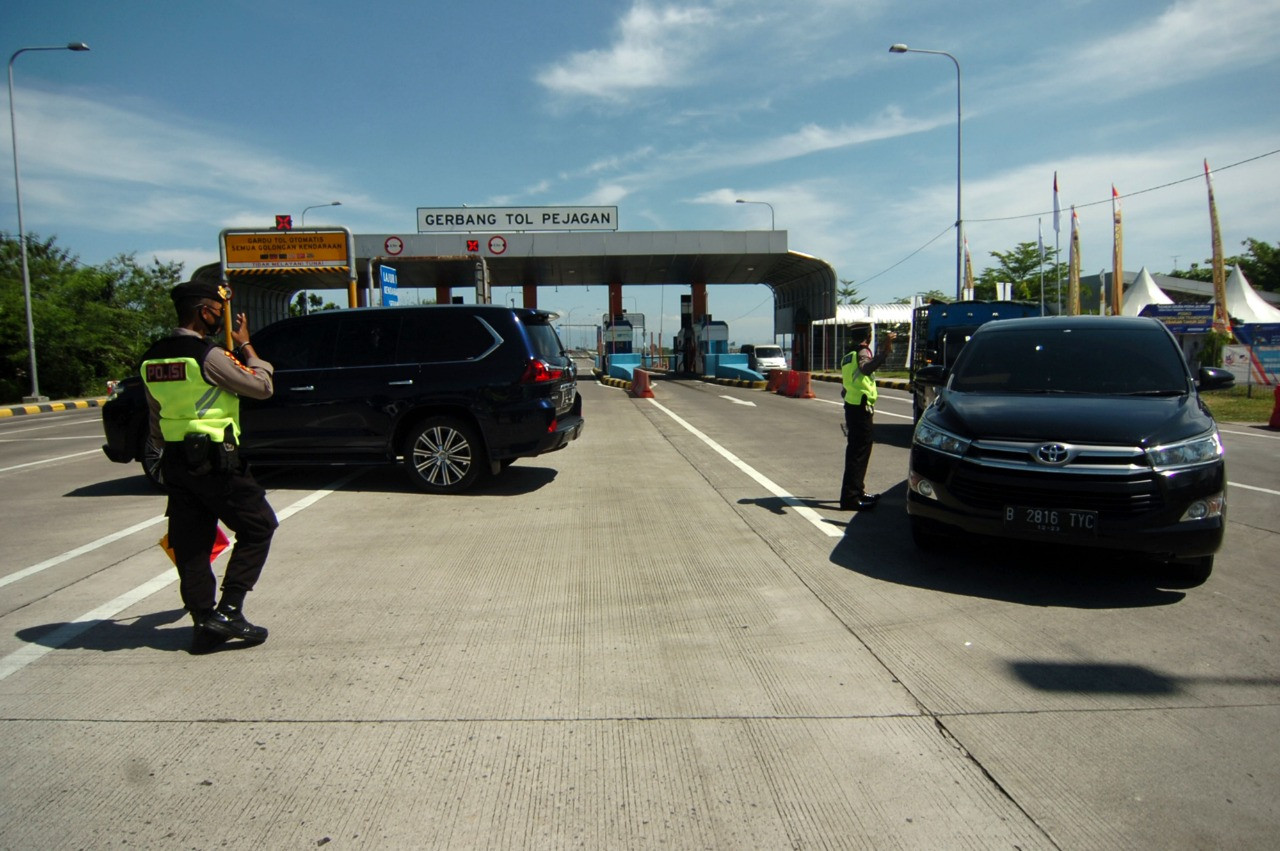Popular Reads
Top Results
Can't find what you're looking for?
View all search resultsPopular Reads
Top Results
Can't find what you're looking for?
View all search resultsSome Jakartans stay put over Idul Fitri
“I’m terribly afraid of the pandemic, I am not a 'covidiot',” Beni said on Thursday, referring to people who stubbornly ignore health rules in relation to COVID-19.
Change text size
Gift Premium Articles
to Anyone
E
mbracing a quiet Idul Fitri, 32-year-old social media manager Beni Satryo slowly strummed his guitar at his office in Kemang, South Jakarta. His three friends sat nearby, enjoying the holiday comfort food: ketupat (rice cakes), beef rendang (slow-cooked meat in coconut milk and spices) and sambal goreng ati (spicy beef liver). The four, despite having family in other cities, decided to stay in Jakarta and spent Idul Fitri together at their office.
It was not simply because he, like everyone else living in Indonesia, was banned from partaking in the annual mudik (exodus) from last week until May 17. Beni did not want to put his health at risk, or worse, carry the virus to his mother or siblings in his hometown of Makassar, South Sulawesi.
“I’m terribly afraid of the pandemic, I am not a 'covidiot',” Beni said on Thursday, referring to people who stubbornly ignore health rules in relation to COVID-19.
This year was his second time celebrating Idul Fitri away from his family in Makassar and instead with his colleagues who share the same concerns. Since the pandemic hit Jakarta last year, Beni has spent most of his days alone in his apartment in Depok on the outskirts of Jakarta or with very few friends at his office, which has become deserted due to the WFH policy.
“My mom and brothers and I had a video call this morning after Idul Fitri prayers to greet each other. That is enough for us."
Read also: Indonesian Muslims celebrate second Idul Fitri under pandemic shadow
Idul Fitri is marked with people returning to their hometowns across the country, mostly from big cities like Jakarta and its surrounding area.
But the pandemic has forced the government to ban mudik for the second consecutive year, with the exception of life-or-death family emergencies and work-related trips -- all eligible travelers of which must carry permission letters from their supervisors or respective local administrations.
A joint force of 155,000 personnel from the National Police, Indonesian Military (TNI), public order agencies (Satpol PP) and the Transportation Ministry have been deployed to 381 checkpoints across Sumatra, Java and Bali, where people must present the necessary permits and travel documents.
Despite this, some 1.5 million people left Greater Jakarta for their hometowns in West Java, Central Java, East Java and Sumatra before and when the ban was in place, the Transportation Ministry reported on Thursday. It remains unclear whether this includes people without mudik permits. But media reports have said that people were finding ways around the ban.
“We need to be patient and practice self-restraint from visiting families,” President Joko “Jokowi” Widodo said on YouTube. “This is indeed hard but we have no choice. We must prioritize our health and safety.”
Last year, Indonesia saw a spike in infections across the country following Idul Fitri, particularly after thousands of people violated the mudik ban. In the weeks following Idul Fitri, nationwide cases rose around 68 to 93 percent, while fatalities climbed 28 to 66 percent.
Indonesia recorded on Thursday 3,448 new cases, bringing the total tally to 1.73 million cases with more than 47,000 deaths since the first two cases were reported in the country over a year ago.
Read also: Bribes, lies and black sticky rice: Indonesians outsmart 'mudik' ban
Ryan Zulfikar, a 27-year-old journalist from Surakarta, Central Java who moved to Jakarta in 2017, said he did not trust that the government’s effort to prohibit mudik would be fruitful in containing the virus spread.
“I don’t think the government is serious in enforcing their policy. People will always find a way to go home and violate the no-exodus policy,” Ryan said on Thursday.
Despite his distrust of the government, Ryan stayed in Jakarta and spent the holiday with some of his closest friends. He had visited Surakarta in April just before the fasting month began to avoid the festivity.
“I find it less troublesome to mudik before the fasting month. I have sent my greetings to the WhatsApp group of my extended family and I think it is enough in this situation,” he said.










